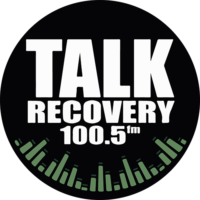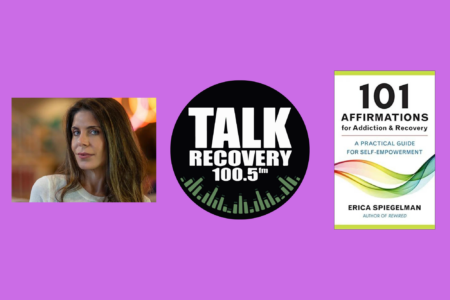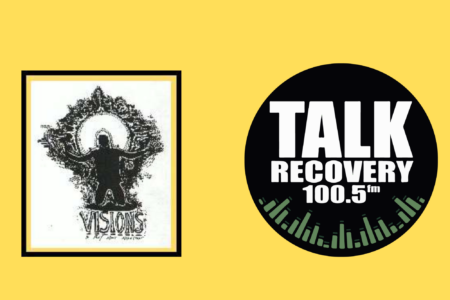Being Sober and Parenting a Video Game Addict
Talk Recovery RadioThis Week on Talk Recovery Radio
Guest 1: Dr. Harry Haroutunian Author of “Being Sober: A Step by step guide to getting through and living in recovery”
About the book:
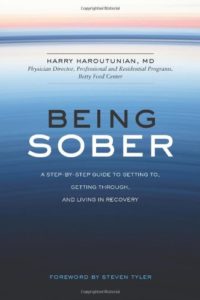
Using clear, straightforward language, Being Sober offers a proven path toward emotional sobriety and a rewarding new life based on gratitude, dignity, and self-respect. Including a Foreword written by Steven Tyler.
It’s All About Changing Lives

Dr. Harry says the number one symptom of addiction is denial. Denial can often be the factor stops individuals from seeking help with addiction by going to treatment or any other form of help from their addiction. Dr. Harry says ever since the 1950s when addiction was labeled a disease and the only thing that has not changed is stigma. He mentions that anyone who shows up to clinics around the US for diabetes they do not have a problem sharing that and once someone needs to go to addiction treatment and get sober, there is a lot of shame in sharing that. Dr. Harry shares his experience getting sober in addiction treatment and writing the 12 steps of AA. He speaks on addiction treatment and how he feels that no cookie cutter approach should ever be used, everyone has a different brain, a different situation and everyone needs different plans for staying sober.
Guest 2: Jeffery Munn Author of “Parenting a Video Game Addict: Strategies for Helping a Child Addicted to Video Games”
About the book:
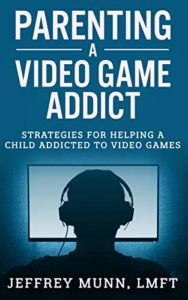
Determine if your child might be addicted. Talk to your child about his or her video game use in a constructive way. Set solid limits and boundaries that actually work. Gently but effectively guide your child towards healthier activities. If you’ve tried everything and nothing has worked, it’s time to use a different approach. Stop resorting to desperate attempts to change your child’s behavior by yelling, lecturing, or threatening. Instead, follow the structured, consistent steps outlined in this book to see real results that last.
Parenting any child brings many challenges, but parenting a child who has fallen under the spell of video games is a unique struggle. Most people can’t do it alone or without guidance. Instead of banging your head against the wall and doing the same thing over and over, make a change in your approach that will make a lasting difference in your child’s life, your life, and the wellbeing of your entire family. Jeffrey Munn is a licensed marriage and family therapist with over ten years of experience working with children, adolescents, young adults, and their families. His work has helped many parents navigate the difficult task of parenting with solid, consistent boundaries in a way that is effective but still loving and positive.
Practically Sane
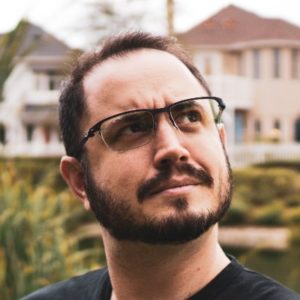
Practically Sane is a website, a blog, and a movement to improve the way we engage in dialogue about the issues we care about the most. Whether communication has become more dysfunctional or social media has just made the dysfunction more visible, one thing is clear: we need to learn how to talk to each other if we want to avoid further hostility and division. Productive conversation is the key to finding solutions and progressing as a society. This site aims to bring more of it into the world.
Website Facebook Instagram Twitter Youtube
“I like teaching people how to feel good and live awesome lives”- Jeffrey Munn
Jeff says that when he talks about video game addiction he looks at the relationship between the person and video games and how it impacts their life. Jeff grew up as using video games as an escape and a coping skill. Jeff uses his book as a way to give tips and share his experience with parents who struggle with their kids video game use.
When asked how to give some tips to parents of video game addicts Jeff says there is many steps to it and the first step is to really determine if the child is really addicted to video games. Addiction is a spectrum, so most youth will have different relationships with video games but when they start to rely on video games to regulate their emotion, and have temper tantrums when it gets taken away is when parents should look closer into it as their child might have a dependence on video games for their happiness.
Ways to prevent video game addiction include mindfulness, meaning knowing and being aware of your habit and having people to be there for you if you think you are playing too much, if that is a friend, parent, partner or anyone. If someone is living alone they might have a hard time stopping playing video games because that is keeping them busy and entertained.
Listen and Subscribe
Talk Recovery airs live every Thursday at noon on 100.5 FM, Vancouver Coop Radio. The Last Door produces this weekly radio show discussing the many pathways to addiction recovery. To end stigma we must continue to talk about recovery. Talk Recovery is in its 7th Season, Hundreds of guests, thousands of listeners, thank you. Show ideas? Email community@lastdoor.org
Powered by #NewWestRecovery

